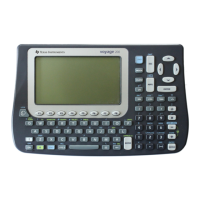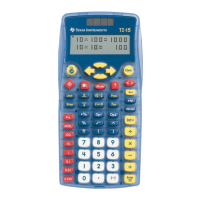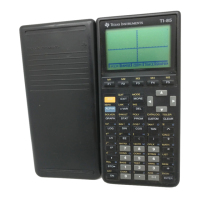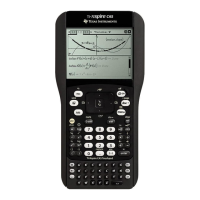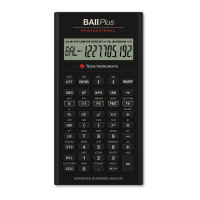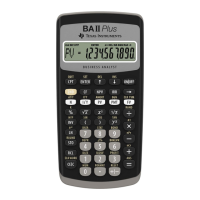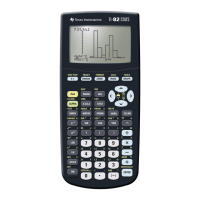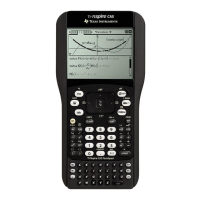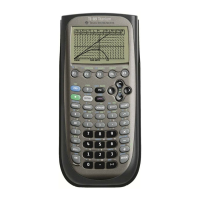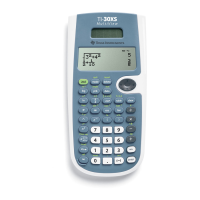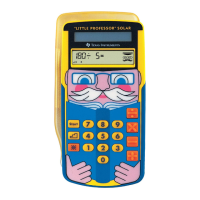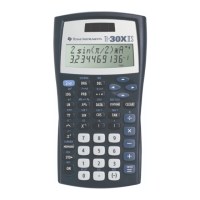Programming 586
• You can create functions that expand on the Voyage™ 200 Graphing Calculator’s
built-in functions. You can then use the new functions the same as any other
function.
• Functions return values that can be graphed or entered in a table; programs cannot.
• You can use a function (but not a program) within an expression. For example:
3ùfunc1(3) is valid, but not 3ùprog1(3).
• Because you pass arguments to a function, you can write generic functions that are
not tied to specific variable names.
Note: You can create a function from the Home screen, but the Program Editor is more
convenient for complex, multi-line functions.
Differences Between Functions and Programs
Differences Between Functions and ProgramsDifferences Between Functions and Programs
Differences Between Functions and Programs
This guidebook sometimes uses the word command as a generic reference to
instructions and functions. When writing a function, however, you must differentiate
between instructions and functions.
A user-defined function:
• Can use the following instructions only. Any others are invalid.
Cycle
For...EndFor
Lbl
Return
Define
Goto
Local
While...EndWhile
Exit
If...EndIf (all forms)
Loop...EndLoop
! ( § key)
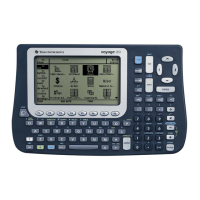
